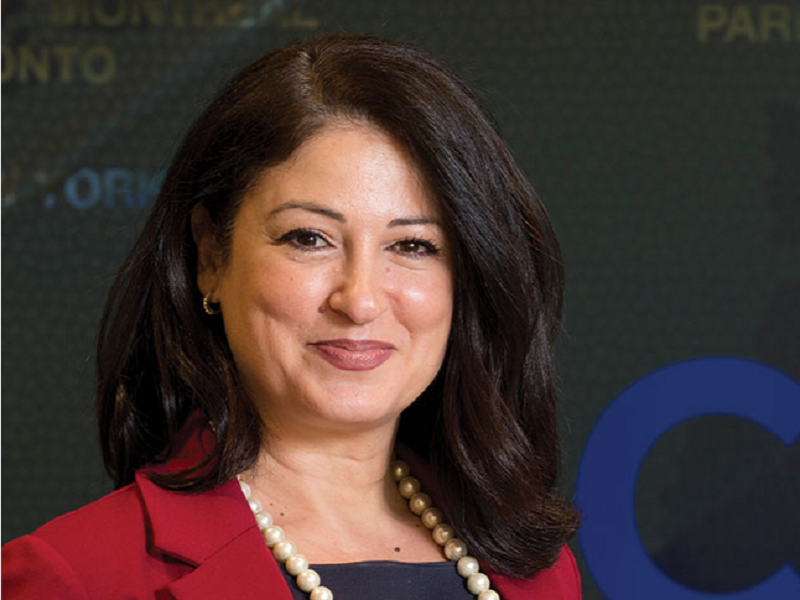

As Citigroup Inc. begins rolling out its plans for returning to the workplace, it’s focusing on supporting employees’ mental health and wellness throughout the transition.
Although Citi has yet to formally announce its full return-to-work plans for its employees who were shifted to remote working in the wake of the coronavirus pandemic, the organization expects that most roles will fit into a hybrid model of both in-office and remote working, says Christine Discola, Citi’s director and country human resources officer. She notes the organization is intent on making the transition smooth for all of its staff and is keeping all segments of its population in mind as it continues to develop its benefits and wellness programs to support them along the way.
Read: Q&A with Citigroup’s Christine Discola
As Citi reopens its offices at 30 per cent capacity this month, the company recognizes the step will likely cause some anxiety for employees, says Discola, noting mental-health support is a primary focus in light of this. Throughout the pandemic, the organization has increased its maximums for mental-health coverage and expanded the list of practitioners covered to include psychologists, clinical counsellors, family therapists, marriage therapists, psychoanalysts and psychotherapists. It also rolled out a new virtual medical consulting service and expanded its wellness programs via webinars and online health and fitness classes.
The road to reopening hasn’t always been smooth, she notes. Indeed, the company has had to navigate choppy waters due to the ongoing waves of the pandemic. For example, Citi had initially intended to reopen its doors to staff back in September without requiring employees to be fully vaccinated. However, after receiving advice from its medical team and responding to the situation on the ground, the leadership team quickly shifted its stance, inviting only those vaccinated back into the office and delaying the return date to Nov. 1.
Read: RBC focusing on mental health as hybrid work model rolls out
Knowing the company is putting employees’ health and safety first gives employees a sense of security as they transition back to in-office work, she says. A recent survey conducted by Citi found the majority of its employees are vaccinated and willing to share their status — everyone who’s returning to the workplace has done so.
All decisions driving Citi employees’ return to the office are rooted in evolving medical data, science and guidance from medical professionals, in addition to government mandates and guidance, says Discola. She adds the guiding principles that the company put in place at the beginning of the public health crisis — transparency in communications, health and safety and employee wellness — still remain. “But above all, we’re basing decisions on medical data, not arbitrary dates.”
Read: Employers enforcing rules for unvaccinated employees
As the company welcomes employees back into the workplace, it’s also launching a series of mental-health training programs for its company leaders on recognizing the signs of anxiety and stress that employees may experience as they re-acclimate to in-person work. Although employees may want to return to the office, Discola acknowledges they may still experience anxiety around returning. “We have packaged and prepared and are delivering information to employees to help them with the wide range of concerns they may have.”
The return to workplace is such an important decision, she says, noting Citi is listening to what its employees are communicating about what they need, what’s working and what’s not. But she adds the organization also must consider what its future employees are saying as they’re an important source to get a pulse on what the marketplace considers the most important quality in an employer.
“We want to stay competitive, we want to maintain our employees and keep them engaged, as well as attract new talent.”
Read: Employers enhancing meaningful benefits offerings to attract, keep top talent
